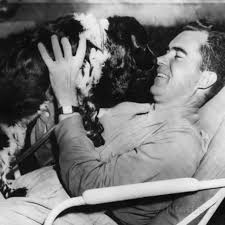George Ripley: Do your readers a favor and interview Mike Gravel. I think you’ll find a great deal of substance.
If you say so. Here. I float these questions into cyberspace.
I. The primary issue that you are pushing is the National Initiative Process. Thinking about it, I don’t see how it will particularly affect American governance, quite frankly, and I’m imagining it evolving much as the State Initiative works, which you yourself have said, is dominated by corporate interests. How will this be set up so that it is not state-controlled or apt to be purchased whole-scale by corporate interests so that it really does represent that “paradigm shift” you say it is going to?
2. In any National Initiative measure I have seen laid out, the power to declare war will be moved from the Congress to the Public. We’ve already passed this point where Congress has ceased declaring wars and simply passes Congressional Authorizations for the Use of Military Force — and, quite frankly, even the Congressional Authorization seems to be fading away — I worry about future presidents using Bush as a precedent in his general demenor of what he believes “Commander in Chief” means. Unless you can explain how this particular attitude may change, I picture the Congressional Authorizations simply being transferred to Public Authorizations, and — because the President has a bullhorn and the channels for information and propaganda, the public will be reticient in letting military adventures proceed — when Congress passed the Congressional Authorization to use force in Iraq they pretty closely matched public opinion. This means that I once again don’t picture the Initiative Process having much of a real-world impact on another major issue that you are pushing — War and Peace. Using our situation in Iraq as a case study (though Vietnam probably serves as well, but I don’t believe in Vietnam the Congressional reaction was to pass pointless non-binding resolutions), I can not come to a formation as to whether the American public would be any more or less reticient to remove ourselves from an unpopular war.
3. I see your “Maverick” label coming up in your plans to change the tax structure to rely heavily on a 22 percent national sales tax. What I keep seeing other Democrats thinking, and what I thought when I first saw your campaign, was “Regressive” and “Steve Forbes like”. So, are you going to (a) convince them that this is a good idea and is in league with the traditional prinipals or (b) convince them that the rest of your candidacy is so compelling that they should overlook this?
4. The 1972 Democratic Convention. You played a part with a strange speech where you offered yourself up for McGovern’s running mate (Alaska’s 3 electoral votes would serve the party well, I suppose), then almost immediately withdrew yourself that slot. Was this simply grand-standing, a flight of whimsy admist what was considered a historically open convention (the polar opposite of 1968 — though about as unsettling to the television audience), or what?
5. Is The Gravel Administration moving toward Energy Independence? (Why we are in Iraq, right?) My eternal cynicism on the matter has an Alaskan politician heavily promoting drilling in ANWR, and any politican trying to navigate our national politicspandering in the Corn Belt (re: Iowa) by pushing, pointlessly, Ethanol.
6. Just what do you envision a World Government Organization, stronger than the United Nations as you’ve said, doing? And when will this World Government convene? How is it going to enforce the minimal and universal standards that its set up to, I suppose, enforce?
7. Is there anyone in American politics you particularly admire? Is there anyone in office today you can picture Daniel Ellsburg trying to float the Pentagon Papers to, or are they all boneless wonders?
8. As noted by wonkette.com, National Journal ranked the candidates and didn’t bother to include a photograph of you. ( http://www.msnbc.msn.com/id/16710815/ ) Has your campaign sent them a photograph? Also, a bit more seriously, I’ve wondered about the state of your campaign from the beginning. Your appearance at that leadership conference suggests that you will at least be appearing in the debates. How do you imagine your campaign getting some traction into the national consciousness? Are you just going to have to come up with some clever sound bytes to use in the opportunities the media is forced to cover you, and convince people like me that this campaign is not simply a platform to advance your pet issue of the National Initiative?
9. Are you on Richard Nixon’s fabled Enemies List? Are you allowed a facsimilie copy to frame and hang on the wall?
10. The War on Terror. There is a man, presumably in Pakistan, named Usama Bin Laden leading what he considers a “Holy War”. He struck the US on 9/11, one of several attacks on the soil of the “Free World”, and the Quasi-Free World. The War in Iraq has demonstrate the limitations of American military power, in case anybody had forgotten, as well as has limited the power of American military power. Bush, for whatever reason, decided to open up a Front in Iraq and make it the Central Front. I presume that your plans in Iraq include disengaging and engaging the regional powers, who have as much an interest in not allowing Iraq descend into chaos as we do. This should change the scene, though not necessarily make it better. So, the question is simply: “The War on Terror” and the problem of Islamic Extremists: what will we do short-term, mid-term, and long-term and how do we reconcile whatever contradictions therein?
There. 10 Questions. It will now float in cyberspace, doint what I do not know.
I suppose just for kicks I should come up with roughly 10 questions for every one of the candidates. And I may just well do so.




